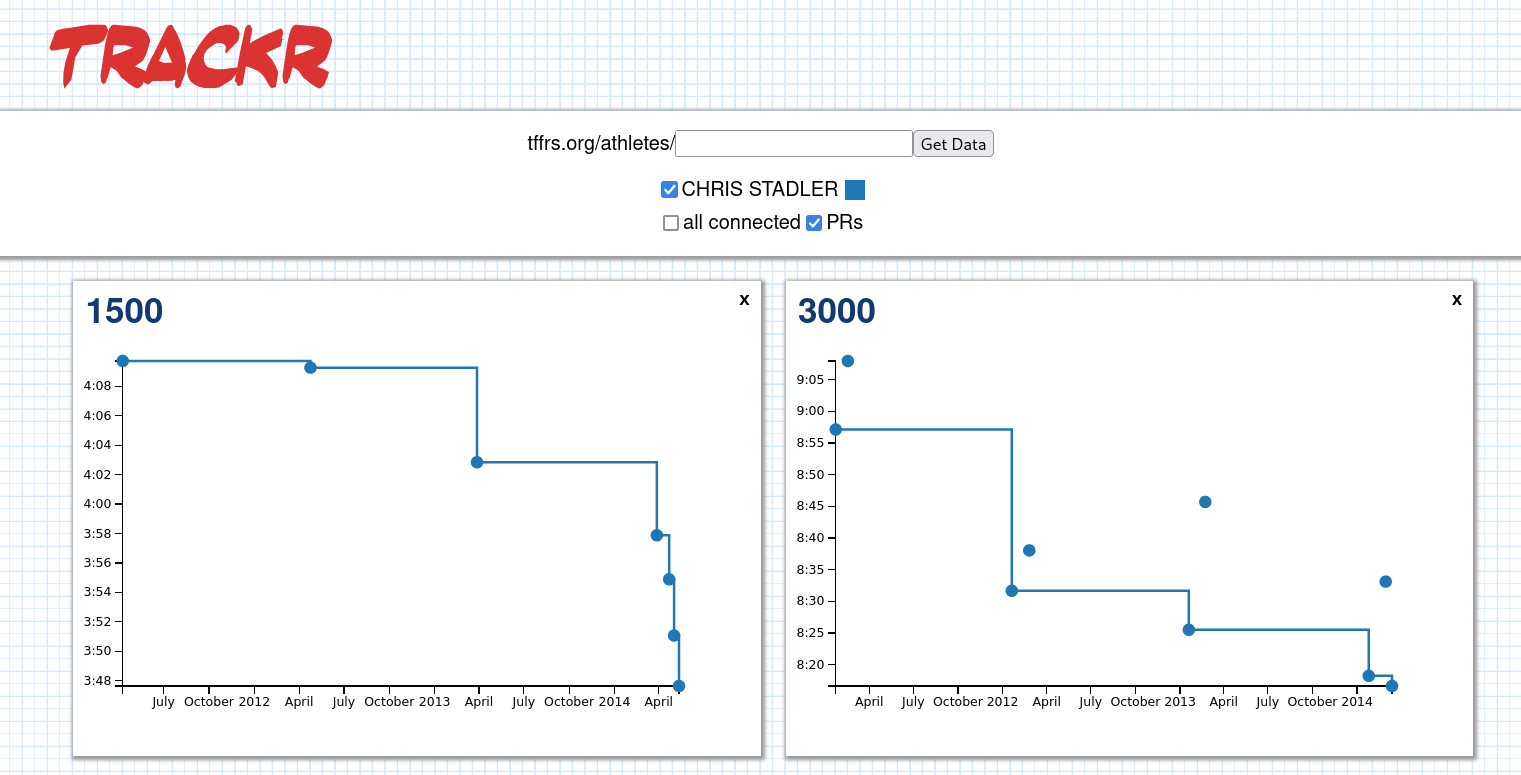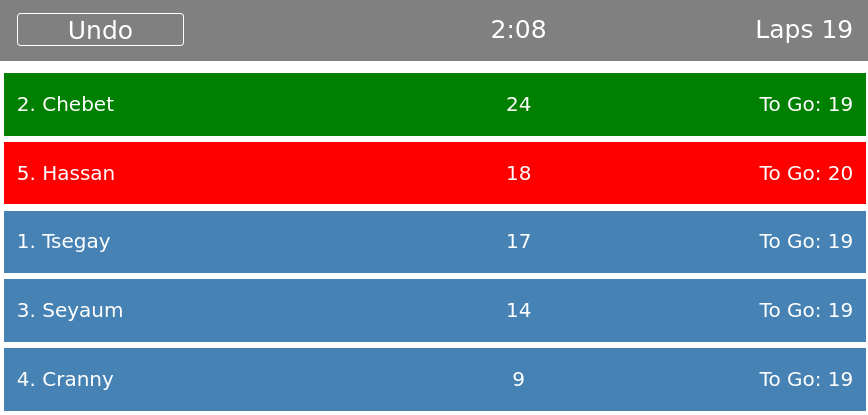Projects
Trackr

Charts the race times of collegiate runners, to visualize progress and to compare athletes. Data is scraped from TFRRS.
Uses React, and D3 for the charts. I worked on this mostly in 2015, and surprisingly the scraper has only needed to be updated once since then.
Lap Counter

Helps with counting the laps of runners in track races. In races where many athletes are lapped (e.g. an indoor 5k) it can get very difficult to keep track of how many laps everyone has to go if you are using pen and paper. With this app the user just taps each runner each time they complete a lap, and the list of athletes is kept sorted so that the next athlete should always be near the top of the list. Leader is in green, lapped athletes are in red, current lap times are displayed in the middle.
This was also written in 2015, and is more of a prototype than a usable application.
Ruby State Machine Checker
Verifies (as in proves, not tests) properties of state machines written with the state_machines gem.
This was a project for the formal methods course in my master’s program (2019). I was interested in making verification accessible to more developers, albeit in a very limited manner. I still think it’s pretty cool to be able to write specifications in Ruby:
it "cannot fail after completed" do
formula = AG(atom(:completed?).implies(neg(EF(:failed?))))
# Translation: for all paths it is always true that from a `completed?` state
# there is no path to a `failed?` state.
expect { Payment.new }.to satisfy(formula)
end
And get readable error messages:
Expected state machine for Payment#state to satisfy
"AG((completed?) => (¬(EF(failed?))))" but it does not.
Counterexample:
[:started_processing, :complete, :started_processing, :pend, :failure]
This was all written in Ruby.
Floating Point Fast Math Exception Detector
Identifies inputs to a program that are likely to cause exceptions if the program is compiled with “fast math” flags. Ideally we would be able to compile programs with these flags enabled, and still have confidence that unexpected exceptions will not occur.
This was part of a research project I worked on in my master’s program (2019) with Thomas Wahl. I wrote an LLVM pass for instrumenting floating point operations with exception checks, and a Python program to compile the LLVM IR into SMT formulae.